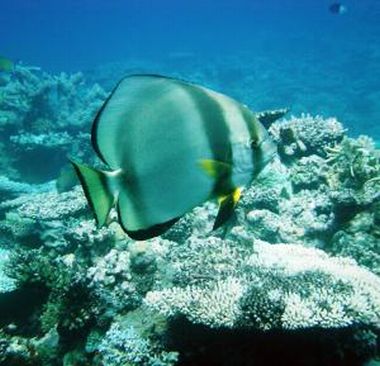
Ocean acidification caused by increasing carbon dioxide into the environment is threatening sea life.CO2 from the atmosphere dissolves in the ocean, and makes it acid. The dissolved CO2 reacts with the seawater to form carbonic acid (H2CO3), increasing the water acidify (i.e. reducing pH).
The exact results of this are unknown, but are potentially disastrous as common marine organisms, such as the fishes we use as food, may be unable to survive.
If there are no significant changes in the global carbon cycle, the pH of water will be maintained through equilibrium. However, the oceans are already 30 percent more acid that before fossil fuel burning started.
Scientists say ocean acidification poses a great danger to marine life and ecosystems. Organisms that use calcium carbonate to form shells and skeletons are at a greater risk. Hence, phytoplankton and corals may soon become extinct.
For decades, scientists have viewed the oceans’ absorption of carbon dioxide as a positive thing because it mitigates the effects of global warming, but by taking up one-third of the atmosphere’s carbon dioxide oceans are transforming their pH level.
The beautiful coral reefs as we know them might just become history if concentrated efforts are not put in to fight acidification.
Pteropods, tiny shelled marine organisms which secrete natural carbon dioxide may be one of the best ways to determine growing ocean acidification due to their high sensitivity to ocean pH.
If these organisms one day disappear, their natural predators will be forced to migrate elsewhere for food sources. This could have large-scale effects on the availability of fish and carbon saturation in oceanic regions.
Via:Mongabay
Image1


